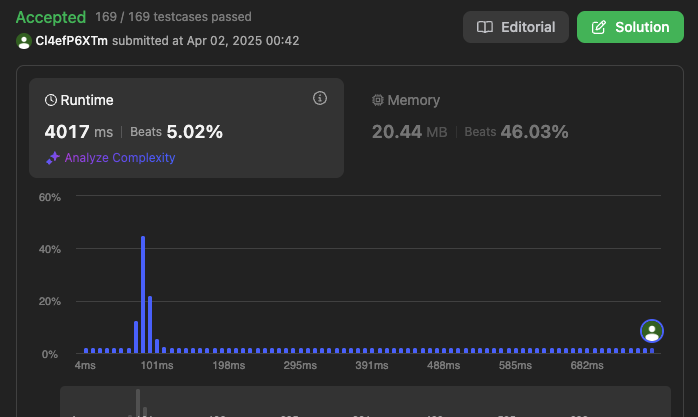[LeetCode] Top Interview 150 Problems Solving # 80 Remove Duplicates from Sorted Array II
 Ramhee Yeon
Ramhee Yeon
Understanding the Problem
An integer list of nums has numbers that could be either duplicate or non-duplicate. It is to leave 1-2 values for each number in the list in-place, which means it is nothing to do with returning any value from the method.
# example 1
Input: nums = [1, 1, 1, 2, 2, 3, 3, 4]
Output: nums = [1, 1, 2, 2, 3, 3, 4] # it is not a returned value. Must fix nums list from the parameter
Approach
I had an experience of removing duplicates from the given list. It was pretty much the same though. But this time it allowed each unique element to have 2 duplicates.
I was going to have the unique values with set() method and iterate from this.
Solution
The problem solving steps are as below.
I get the unique values into
unique_nwithset(nums)Then I would check each element with
nIf
nhas more duplicates than 2, remove in thewhileloop
class Solution:
def removeDuplicates(self, nums: List[int]) -> int:
unique_n = set(nums)
for n in unique_n:
while nums.count(n) > 2:
nums.remove(n)
Reflection
This solution is not the best I could tell as the time complexity scored 4017ms! An amusing runtime number I had not seen before. There are two loops for and while, which will be close to O(n²) at worst.
People had it done in a different way with double pointer.
class Solution:
def removeDuplicates(self, nums: List[int]) -> int:
k = 2
for i in range(2, len(nums)):
if nums[i] != nums[k - 2]:
nums[k] = nums[i]
k += 1
return k
With this solution k-2th and ith index values are compared. The code could be visualised step by step like this.
# step 1
nums = [1, 1, 1, 2, 2, 3]
idx => 0 1 2 3 4 5
i k
# i is 0 and k is at 2
# nums[i] != nums[k - 2] this condition is False
# step 2
nums = [1, 1, 1, 2, 2, 3]
idx => 0 1 2 3 4 5
i k
# i is 1 and k is at 2
# nums[i] != nums[k - 2] this condition is False
# step 3
nums = [1, 1, 1, 2, 2, 3]
idx => 0 1 2 3 4 5
i
k
# i is 2 and k is at 2
# nums[i] != nums[k - 2] this condition is False
# step 4
nums = [1, 1, 1, 2, 2, 3]
idx => 0 1 2 3 4 5
k i
# i is 3 and k is at 2
# nums[i] != nums[k - 2] this condition is True
# nums[k] is updated, and k is updated
nums = [1, 1, 2, 2, 2, 3]
idx => 0 1 2 3 4 5
k i
This process goes until the end. It is quite a tricky algorithm without visualisation. With double pointers the time complexity will be close to O(n).
Subscribe to my newsletter
Read articles from Ramhee Yeon directly inside your inbox. Subscribe to the newsletter, and don't miss out.
Written by

Ramhee Yeon
Ramhee Yeon
South Korean, master's degree of AI. Programmer for LLM, app and web development. I am seeking opportunities to go to the USA and Canada, and Europe. I used to live in Frankfurt, Moscow, Pretoria, Baguio. Where to next?